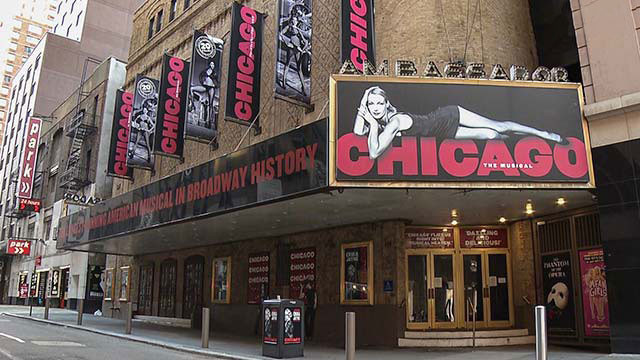Well, are people really giving up and leaving New York? It has certainly felt like it around the NHK office, located between Times Square and Rockefeller Center. There were times during the summer when midtown Manhattan felt like a ghost town, with no tourists to be seen and office employees working from home. People have trickled in since then, but the district is still not the bustling hot mess it once was.
Data supports this feeling. In December, a report published by the location analytics firm Unacast found that since the pandemic began, 70,000 people have relocated from the city.
Christophe, an IT technician, and Tiffany, who works in finance, are among those eyeing an exit. They just brought a child into the world and are ready to leave the city as soon as they can.

They cite a lack of economic activity and the disproportionate living space-to-expenses ratio as their reasons to depart.
"There's no point of being in the city," Christophe told me. "Everything is more expensive and more difficult to get. Everything is closed."
The couple currently resides in a two-bedroom apartment in Woodside, Queens. They say they are looking for houses in New Jersey but have had a difficult time finding the right fit because of the inflated housing market in the areas surrounding New York.
Due to their full-time jobs, the couple has also not been able to attend open houses on weekdays and have missed out on homes within their interests and budget. I was surprised to learn that it had been more than half a year since they began their search.
For realtors in areas neighboring New York City, business is booming.
About 20 groups of people attended a one-day open house for a single-family home in Montclair, New Jersey.
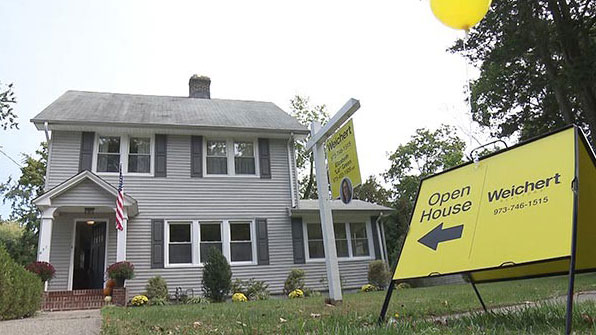
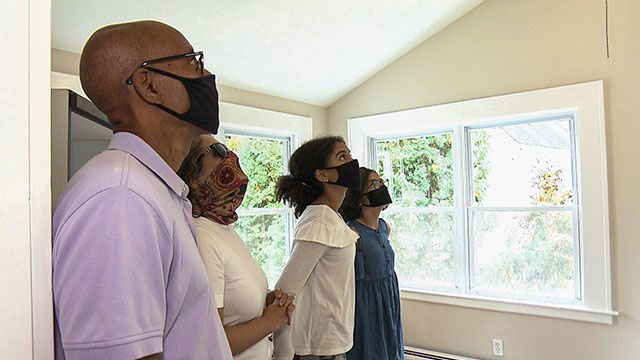
Bids are 20-25 percent higher than usual, realtor Diane Russell told me. "We forecast that this is going to continue as an ongoing trend, that people are really looking to move from the city and also take advantage of the low interest rates."
In December, the 3-bedroom house sold for around $580,000, despite being nearly 100 years old.
On the other hand, vacancy rates in Manhattan have reached record highs… while prices have plummeted.
According to a report published by real estate firm Douglas Elliman, the Manhattan rental vacancy rate in January was 5.3% — a drastically high figure compared to the 1.7% rate during the same month last year. In fact, since the firm started collecting data in 1994, the record high was in October-November 2020, at 6.1%.
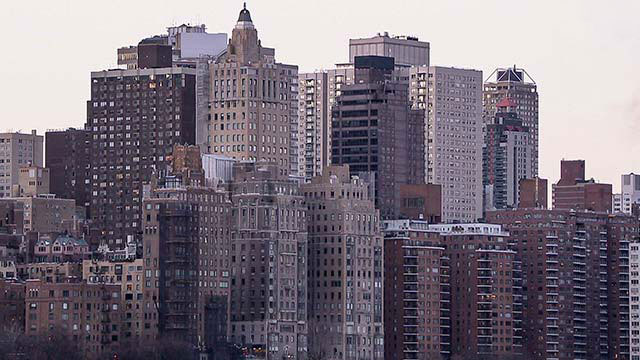
This downward spiral has opened up once-in-a-lifetime real estate opportunities, said Douglas Wagner, director of brokerage services at BOND Real Estate, while showing me a brand new 2-bedroom apartment he is looking to fill in upper Manhattan.
"Landlords and developers are offering concessions discounts that they've never offered in my 26 years in the business," he said. "We're offering three months free right now. There are a lot of new buildings that are in the process of leasing out that are offering three months, two months, four months. This is unprecedented. It is so unusual that you'd see a landlord giving away a third or 25 percent of their annual rent roll, just to attract tenants. But that's what it takes to be competitive today."

Even with the discounts, only about 20 percent of the building's 103 new apartments have been filled.
New York City's problems extend beyond real estate pricing.
The massive budget deficit fueled by emergency pandemic-related spending could be further exacerbated by residents moving away, Jonas Shaende, Chief Economist of the Fiscal Policy Institute, told me.
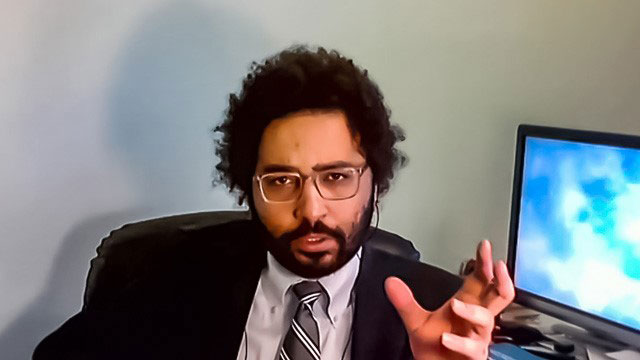
According to city data, more than 20 percent of the New York's budget comes from personal income tax. Additionally, the wealthiest 1 percent of residents contribute nearly half of the income tax revenue collected.
What to do about the city's richest residents has spurned a fierce debate among citizens and public officials. Mayor Bill De Blasio has repeatedly asked for Governor Andrew Cuomo to raise taxes on the wealthy to cover essential services and bolster recovery programs, including initiatives to address the learning gap public school students have experienced during the pandemic, among other concerns.
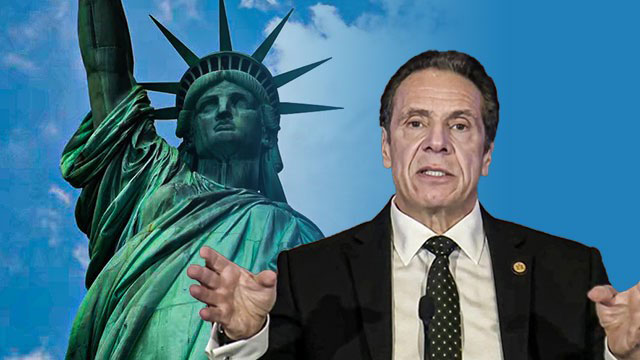
Governor Cuomo has been hesitant to tax the rich.
"I literally talk to people all day long who are now in their Hamptons house who also lived here, or in their Hudson Valley house, or in their Connecticut weekend house," he said at a press conference last summer, referring to wealthy residents. "And I say, 'You got to come back! We'll go to dinner! I'll buy you a drink! Come over, I'll cook! They're not coming back right now. And you know what else they're thinking? 'If I stay there, I'll pay a lower income tax,' because they don't pay the New York City surcharge."
Shaende believes tax policy should not be centered around the richest 1 percent. It is much more important to make the city an attractive place to live and do business, which will catalyze new economic activity vital to the future.
"I would invite you and others to think about wealthy individuals, millionaires, not as a fixed resource," he said in a Zoom interview with NHK. "They are a product of the economy. They are the successful people in this economy. So, our job as policymakers should be to maintain the health and the vitality of this economy, so that it keeps producing more and more successful in individuals."
According to Shaende, raising taxes will cause wealthy individuals to relocate. But he believes not all will leave, and policy emphasis must be put on producing new millionaires rather than pleasing those already here. He calls on the state to raise taxes on the wealthy to cover programs toward an economic recovery that will aid the restaurants, small businesses, and cultural institutions that make the city, the city.
New York's competitors are not cities and townships in Florida and New Jersey. Rather, the competitors are other global hubs such as Tokyo, London, and Hong Kong, which attract international talent that contribute to the vibrant mosaic of economic and cultural activity. It costs a lot of money to do business in New York City, but you can make more here, too. It costs a lot of money to live in New York City, but the food and entertainment is unmatched.
Before worrying about the richest individuals abandoning the city because of high taxes, the focus must be on rebuilding what makes New York City so attractive to people around the world in the first place.
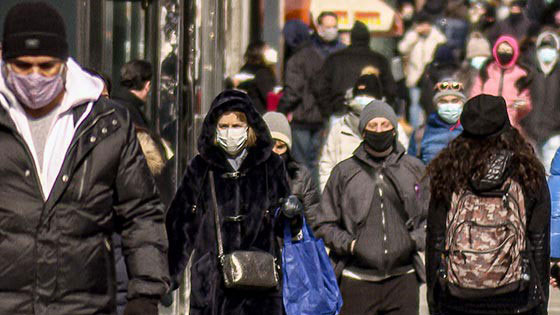
So, is New York City dead forever?
"We just have to wait a little bit, and things will come back," says Shaende. "They will not come back to where they were. They will not be the same. They will be different. But I think that's the beauty of progress and transformation. And throughout thousands of years of human history, cities have been at the center of it all. And I think that is going to continue."
I certainly hope so.
